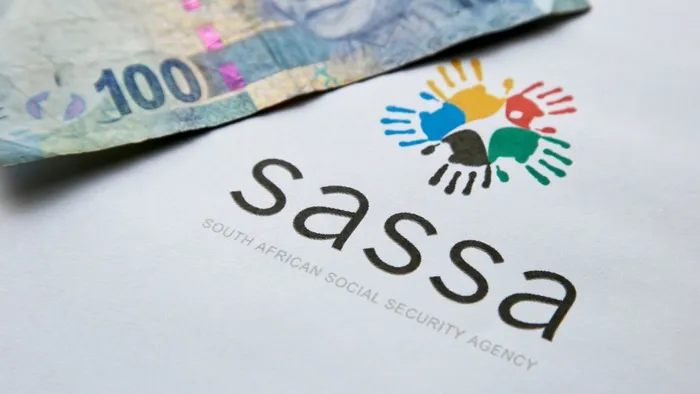
The social relief of distress (SRD) grant, introduced at the height of the COVID-19 pandemic has been extended to March 2026.
Image: File
The social relief of distress (SRD) grant, introduced at the height of the COVID-19 pandemic, will remain in place until March 2026 as the government continues to explore long-term options to replace it.
According to the latest budget documents, the grant will continue at a value of R370 per month during this period.
Finance Minister Enoch Godongwana on Wednesday announced that R844.4 billion has been allocated to the Department of Social Development over the medium-term expenditure framework (MTEF) period.
Of this, an estimated 99.7% or R841.4 billion will go to transfers and subsidies and R815.8 billion from that total specifically allocated for social grants and the remainder to transfers for entities.
The department remains one of the largest drivers of government expenditure due to the critical role it plays in reducing poverty and providing a safety net for vulnerable South Africans.
An estimated 45% of the country’s population depends on social grants or the SRD grant as a primary source of income.
This includes approximately 13.2 million child support grant beneficiaries and 4.3m recipients of the old age grant.
Social grants are distributed through the Social Assistance programme, whose allocations are set to increase at an average annual rate of 0.3%, from R269.4bn in 2024/25 to R271.4 bn in 2027/28.
The budget document noted that “the budget for social grants has been adjusted downward from the one presented on March 12 to align spending with revised revenue proposals".
Despite this downward adjustment, the document confirms that social grants will be augmented by R1.6 billion in 2025/26 to help beneficiaries cope with the rising cost of living, although no additional increases are planned for the two outer years of the MTEF period.
From April 2025, the old age grant will increase by R120 to R2 310 and rise again by R10 in October to reach R2 320, as originally announced in the March Budget.
In addition, a further R34.9b will be added to the Social Assistance programme in 2025/26 to cover the extension of the SRD grant until the end of March 2026.
Godongwana said the government is actively reviewing the future of the grant as part of a broader effort to connect social support with employment.
“Government is actively exploring various options to better integrate this grant with employment opportunities. This includes considering a job-seeker allowance and other measures, as part of the review of Active Labour Market Programmes.
"Our goal is to not only provide immediate relief. It is also to create pathways to employment, empowering our citizens to build better futures for themselves and their families," Godongwana said.
The expected termination of the SRD grant in March 2026 will see the social grants budget drop to R259.7 billion in 2026/27, down from the previous year, due to reallocation of funds to other government priorities.
The number of social assistance beneficiaries is projected to decrease significantly from an estimated 27.7m in 2024/25 to 19.3m in 2027/28.
To prepare for this transition, the Department of Social Development plans to undertake a comprehensive review of social security policy over the MTEF period.
This includes improving communication with beneficiaries to ensure they understand their rights and know how to appeal declined applications.
“To enhance beneficiaries’ understanding of their rights and promote appeals for declined applications, the agency will strengthen stakeholder engagement on the effectiveness of social security policies. The government will also develop policy options on the replacement of pandemic-related social relief of distress, which is set to end in March 2026.
"This will partly be done through reviewing work, skills, and sustainable livelihood programmes aimed at enhancing their efficiency and reducing reliance on these funds,” the budget document stated.
To support these initiatives, the Social Security Policy Development subprogramme will receive R226.8 million over the MTEF period.
The department is constitutionally mandated to provide national leadership in the social development sector and will also direct attention to maintaining the integrity of the social assistance system.
The Social Grants Fraud Investigations subprogramme has been allocated R235.7m over the same period.
A portion of this budget will go toward establishing the long-awaited Inspectorate for Social Assistance, which will be responsible for conducting investigations to ensure the integrity of the social assistance system.
To speed up appeals and improve case tracking, the department plans to develop an electronic case management system through the Independent Tribunal for Social Assistance Appeals. This body was established to handle appeals from applicants who are dissatisfied with decisions made by the South African Social Security Agency.
“Accordingly, the department aims to increase the percentage of appeals addressed within 90 days, from 90% in 2024/25 to 95% in 2027/28, at an estimated cost of R120.4m in the Appeals Adjudication subprogramme, also in the Social Security Policy and Administration programme.”
Cape Argus
